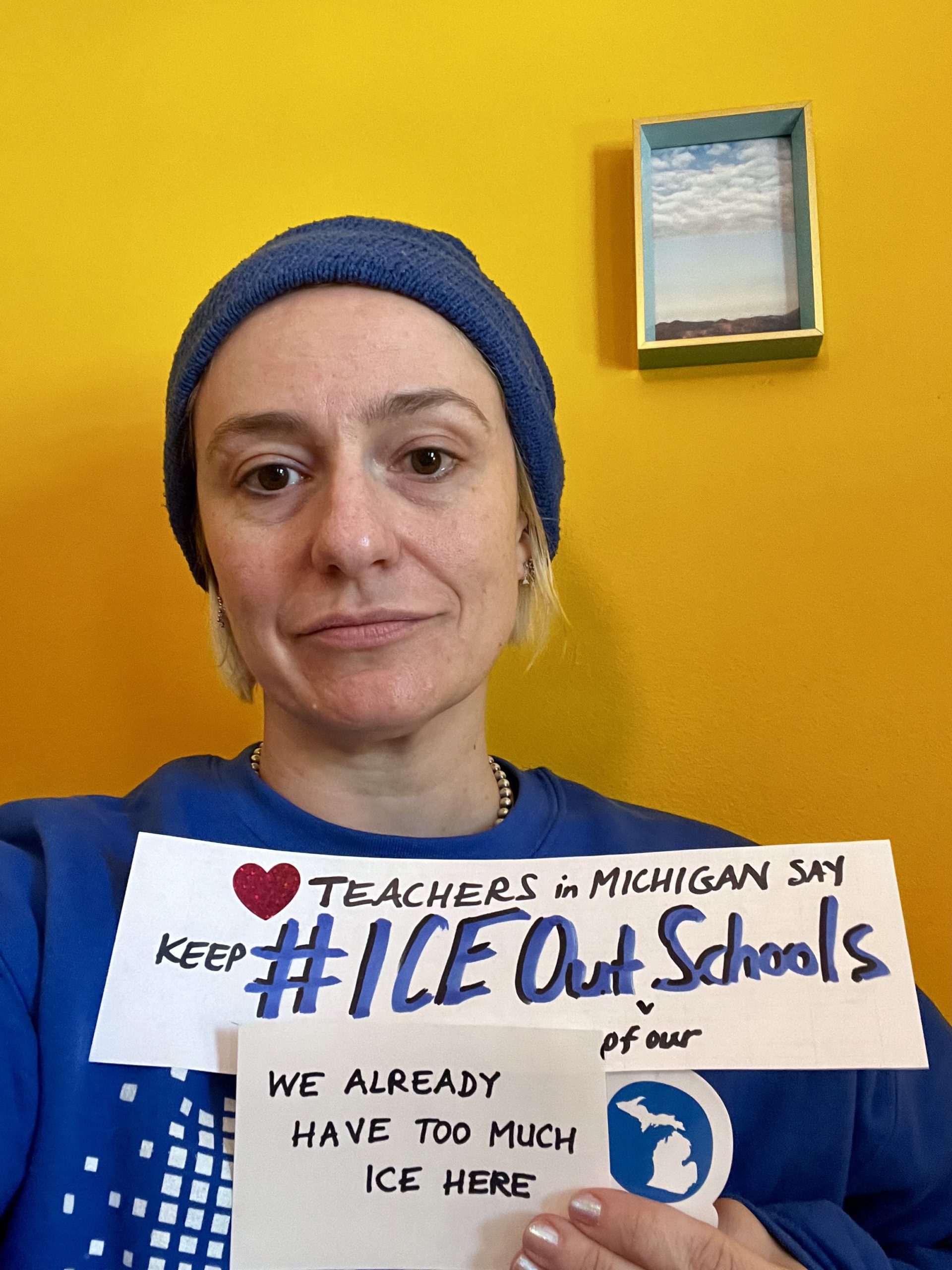Teacher Recruitment and Retention
By Jennifer Dooley M.Ed., MAED.
Sixth-grade teacher
Pontiac City School District
In the December-January issue of MEA Voice magazine, I was one of several educators quoted in a piece about educator recruitment and retention. However, I found when the issue came out, my quote did not make sense out of context. Without explanation, it was hard to see how my comment related to the subject at hand.

I was speaking of the difference between equality and equity that exists in our educational system. I was pointing out the importance of ethnic representation in our profession. I was talking about white privilege, and I wanted to push educators to challenge their own prejudices and biases that can get infused into their delivery of instruction to all students.
These topics don’t lend themselves to quick sound bites. They demand a longer conversation, because they relate importantly to teacher retention, so I appreciate the chance to share my quote in context and clarify my meaning.
I am ecstatic when I hear organizations and policy makers recommending that educational policy changes are needed in order to create a school funding system with a weighted formula that is based on student needs.
It is one of the most important first steps we can take to acknowledge that not all children are the same nor are they afforded the same economic advantages. Most students are at-risk due to extenuating circumstances that exceed far beyond their ability to adequately produce change.
We do not have equality in our society, and we perhaps never will, though I remain hopeful.
Everyone does not possess identical strengths and weaknesses nor the intrinsic motivation needed to survive this journey‘s struggles and challenges.
Therefore, what is needed is for all educational stakeholders to aspire to achieve equity, fairness, and equality which affords access to opportunities for all. Provide all students the chance to begin the race from the same starting line.
Even if we get the equity piece in place, there is still one big factor that makes the difference in how well students learn. Everything begins with the educator standing before student learners who understand the direct correlation between the instruction and the outcome for learning.
Minority representation in the education profession is dismal, and it’s not because
qualified professionals don’t exist. That situation has to change. It is imperative for educators of all ethnicities to be present in schools; this helps produce positive self-esteem, confidence and identity security for all youth.
Meanwhile, though, it’s all that much more important for white educators – especially those in
majority-minority schools – to examine their own biases and prejudices to enable and enhance their ability to become culturally sensitive to the needs of student learners.
Those assumptions that we all as human beings make about other people or situations are based
on our own limited view of the world and the experiences we’ve had in our lives. But we can’t
continue to just assume all the children in our classrooms have come from what we know.
We have to challenge our assumptions. For white educators, that means being willing to do the
work to understand the white privilege that exists, which many have lived with and benefited from in their lives.
This means actively seeking to be educated and arming oneself with the tools to eradicate the disparities that currently exist in the educational community.
The argument I want to make about teacher retention in today’s educational system is that “before you can make a demand you must be in demand.” That simply means that teachers must deliver high quality education regardless of the social and economic background of the students, which will result in a measurable outcome which validates academic success.
Educators who open themselves up to better insights and understanding about their students have the proclivity to be more successful and will be more likely to endure in the profession for years to come.
These issues extend far beyond just teacher recruitment and retention. The profession needs educators that possess the ability to be empathetic and culturally sensitive while delivering to all students a first-class quality education just as if the student was their own.
Given that context, I feel more comfortable sharing my quote from the magazine:
“When you understand that there’s a child that just got to school late because he had to put his
two siblings on the bus and then get to school because Mom had to go to work already—you
wouldn’t say ‘Go get a pass!’ You would say ‘Come on in, baby; I’m happy to see you.’ Until
we truly see each one of these kids whether red, blue, green, black, brown or purple—as our own
and we educate them as our own, we’re going to miss it.”
Pontiac teacher Jennifer Dooley is a proud MEA member, Region 7 executive board member, and NEA delegate.



